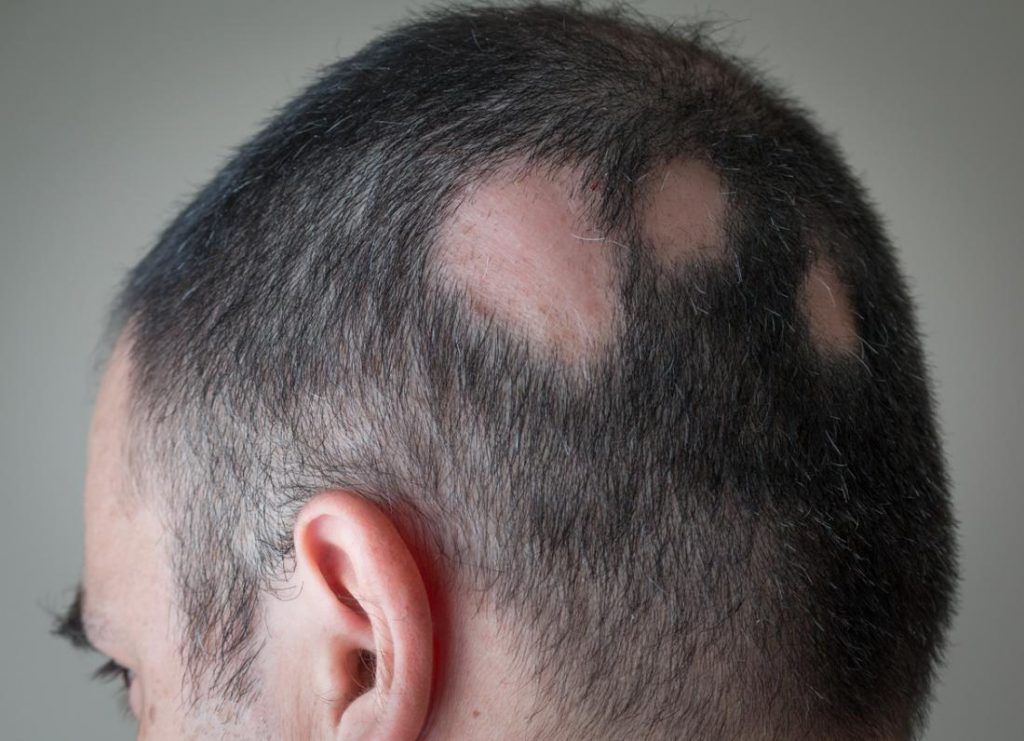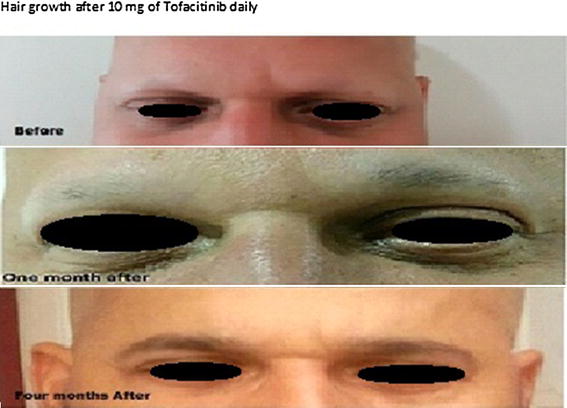

Future RCTs should be adequately powered and employ clearly defined clinical response endpoints to allow future meta-analyses.Īlopecia areata biological therapy drug therapy glucocorticoids hair diseases immunomodulation review. Evidence does not support the use of oral zinc sulphate, alefacept and efalizumab.

The current evidence suggests efficacy of oral prednisolone pulse therapy and oral inosiplex. There is currently no specific systemic therapy that is supported by robust body of evidence from RCTs. Relapse rates were considerable in the four studies that reported this outcome. Adverse events were reported in 13 studies and were corticosteroid related or otherwise well tolerated. No study evaluated the impact of pharmacotherapy on quality of life using complete quantitative quality of life instruments. Alopecia is a Latin term meaning hair loss, and areata refers to the patchy nature of the hair loss. It typically presents with discrete bald patches on the scalp but can cause hair loss from all hair-bearing areas on the body. Different regimens of pulse corticosteroid therapy have been described,1-5 with variable rates of effectiveness and adverse effects. Alopecia areata is an autoimmune condition affecting hair follicles causing hair loss. There was significant variability in the definition of treatment success. To the Editor: The alopecia areata (AA) subtypes alopecia totalis (AT) and alopecia universalis (AU) are associated with poorer prognosis1 and are challenging to treat. Search terms included alopecia areata and treatment, alopecia totalis and treatment, alopecia universalis and treatment, and alopecia areata and reviews. The most frequently investigated therapy was oral prednisolone pulse therapy and oral inosiplex. The PubMed database was searched up to November 15, 2014, for relevant articles regarding the treatment of AA.

A total of 15 different systemic therapies were investigated. We found eight placebo-controlled RCTs, three RCTs comparing two systemic treatments and five RCTs comparing three treatments. Sixteen studies were included with a total of 768 participants. All randomised controlled trials (RCTs) that evaluated the effectiveness of systemic treatments for individuals with alopecia areata, totalis or universalis were included. A systematic search was conducted of the peer-reviewed literature published between 1946 and March 2018 via Medline, Embase, Amed, the Cochrane Central Register of Controlled Trials, PsychINFO and Lilacs. In this systematic review, we evaluated the evidence surrounding systemic treatments for alopecia areata, alopecia totalis and alopecia universalis. A range of systemic treatments are used for alopecia areata with variable evidence supporting efficacy. Investigators searched Cleveland Clinic records for patients with AA treated with tofacitinib from February 2015 to September 2017.


 0 kommentar(er)
0 kommentar(er)
